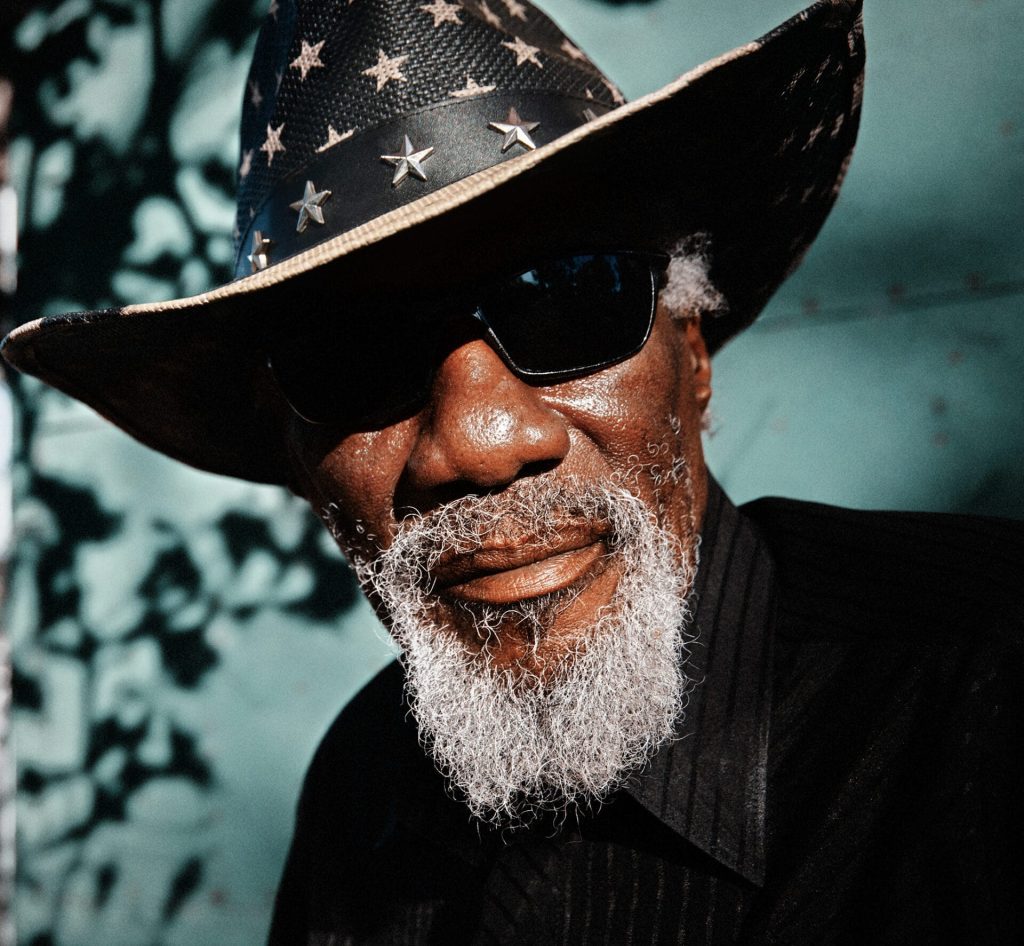
Photo credit: Jim Herrington
***
For nearly seven decades in the sultry heart of Northern Louisiana, where the air is thick with history, humidity and the soul-stirring vintages of blues music, 69-year old Robert Finley was cellaring. He’s now uncorked, thanks in no small part to his connection with Dan Auerbach, one of his biggest champions in recent years.
“I always say, ‘Everything happens within its time; you can’t plant corn today and expect to eat corn tomorrow.’ It’s got to go through that process, but it only takes one grain of corn to make a stalk,” says Finley, who has worked closely with The Black Keys guitarist ever since Fat Possum Records helped connect them. “You can start with one grain, and if it’s nursing properly, you can take that one grain and replant and, the next thing you know, you’ve got a field full of corn, more than you’ll ever be able to eat it.”
Finley is impossible to miss. He dresses sharp, rocking buckles, snakeskin boots, leather cowboy hats and silk shirts with pearl snaps; he moves like a man less than half his age. The singer/guitarist lost much of his vision due to glaucoma—he is blind in one eye—and while it marked the end of his woodworking business, it opened up a new chapter in his musical journey.
Since shifting his focus to music, he has unleashed the critically albums Goin’ Platinum! (2017) and Sharecropper’s Son (2021), appeared on America’s Got Talent, shared the stage with renowned artists and received standing ovations at the Ryman Auditorium. Thankfully, after undergoing surgery to fix one of his eyes, he can once again witness the joy he’s sharing with the world.
His latest set, Black Bayou was born in the heart of Nashville, at Auerbach’s exploratory Easy Eye Sound recording space. At the time of this writing, the studio’s Tell Everybody! (21st Century Juke Joint Blues From Easy Eye Sound)—which features Finley—is No. 1 on Billboard’s Blues Album chart.
For Black Bayou, Finley and Auerbach worked on the fly, relying on spontaneity and the musical prowess of a talented band to craft their tracks. “I can’t speak for nobody else, but with me working with Dan, it’s not work,” Finley says. “We just get together and hang out for a day or two and then play back what we created. I’m allowed to be me, and I’m the only one that knows Robert Finley as well as I do.”
Finley’s music is deeply rooted in the landscape of North Louisiana, where he has spent most of his life. His experiences as a carpenter, a blues performer in juke joints and a gospel singer in local churches have shaped his unique musical palette. Throughout the record, he makes the world his congregation— on “Can’t Blame Me for Trying,” Finley slyly preaches about freedom and nature and, on “Gospel Blues,” he amplifies the best of both worlds while reminding listeners that the two aren’t so different if you just swap the word “baby” for “God.” Likewise, “What Goes Around (Comes Around)” is a sermon on karma.
“I remember the first time my pawpaw took me down to the Black Bayou,” Finley recalls of the inspiration behind “Alligator Bait,” the final song of the album. On that track, he unflinchingly remembers when he was used as gator bait as a child, but he sings with exultation. As far as Finley sees it, “A song should tell a good story,” and his story is one of positive reframing—in every note and lyric.
While Finley’s music has brought him acclaim and recognition, he remains deeply connected to his roots in Bernice, La. He continues to perform in small clubs and old folks homes, supporting local musicians and amplifying their voices. His mission is to help others experience and spread joy. In his world, the blues is not just a genre; it’s a reflection of life’s highs and lows, a celebration of resilience and an invitation to dance through the streets of life. His music tells stories of heartache, joy and everything in between. As he aptly puts it, “If you’re singing the truth, then you can’t go wrong. The world can relate to the truth.” After all, he adds, “We’re all human.”
